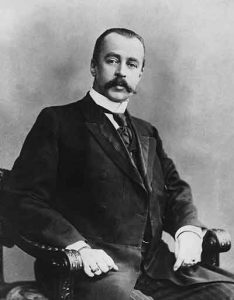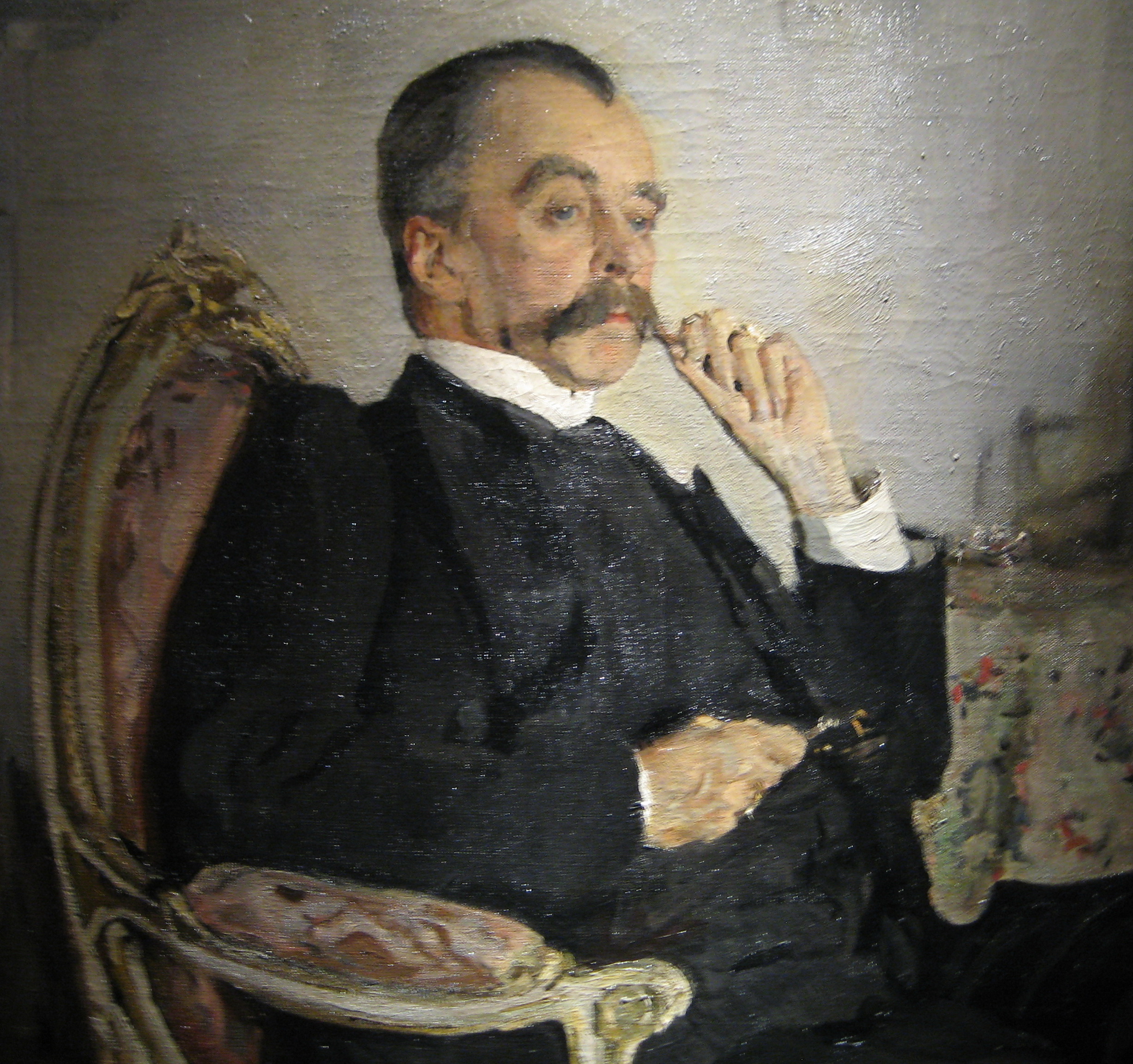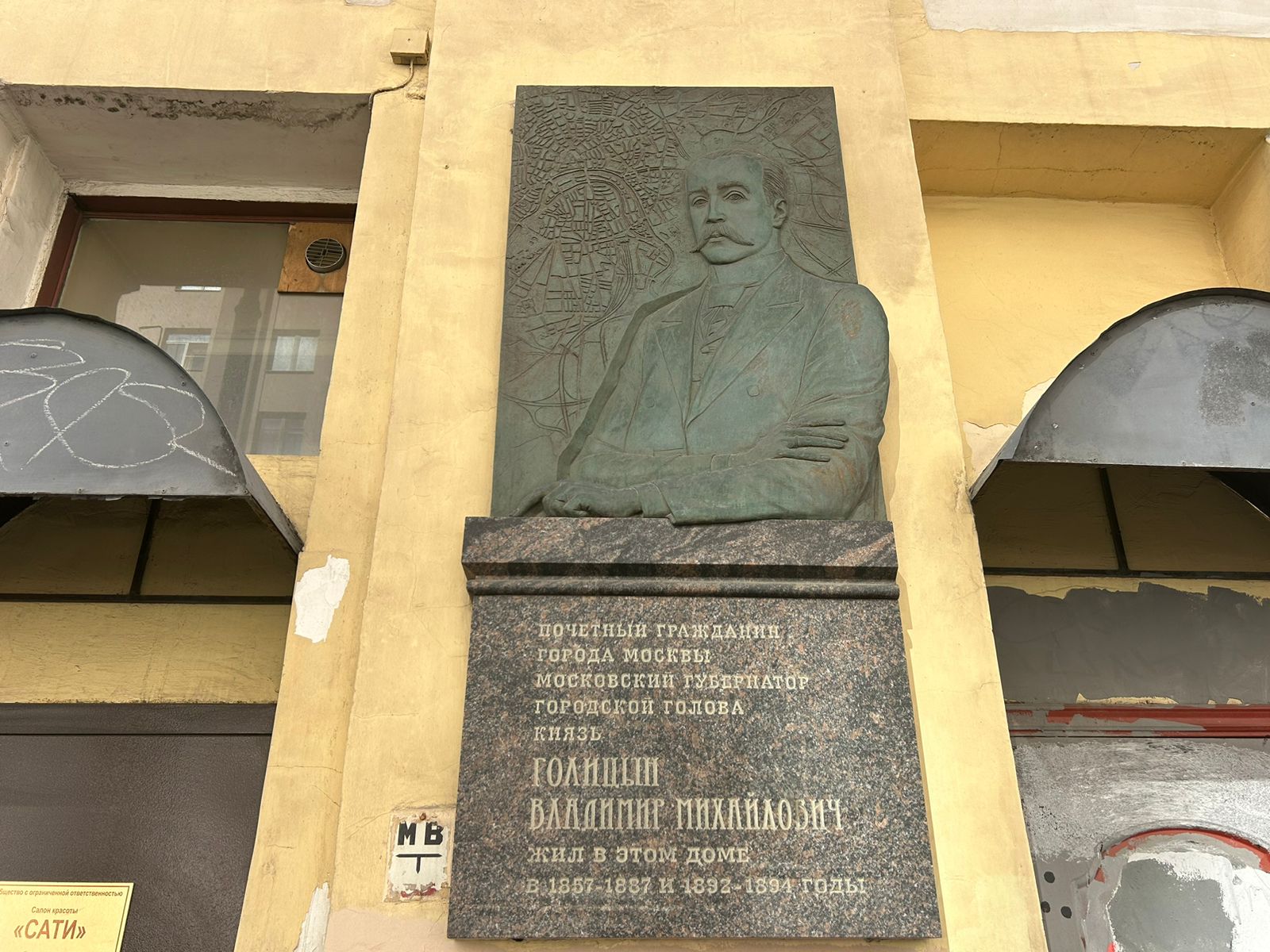Vladimir Mikhailovich
Golitsyn
1847-1932

Prince Vladimir Mikhailovich Golitsyn was an outstanding statesman and a real privy councillor and chamberlain. He held several key positions in the Moscow city administration: he was vice-governor (1883–1887), governor (1887–1891) and then mayor (1897–1905). In 1905, he was one of the 12 honorary citizens of Moscow who were awarded this title before the revolution. He came from the ancient Golitsyn family, which had owned Petrovo-Dalneye from the end of the 17th century. He was born in Paris in the family of Prince Mikhail Fedorovich Golitsyn and Countess Julia Baranova. He had three brothers: Ivan (1835–1896), Alexander (1838–1919) and Mikhail (1840–1918). In 1883, Vladimir Mikhailovich took up the position of Moscow vice-governor and four years later became the head of the governorate. His period of activity coincided with large-scale transformations in the urban infrastructure, initiated by N.A. Alekseev, then mayor of Moscow. In 1885-1893, the first power plant was constructed in the city, located in Georgievsky Lane (1888). A telephone exchange, 50 artesian wells, and Rublevsky water intake facilities with a capacity of 5.4 thousand cubic meters per day were also built. The city’s treasury income expanded due to municipal enterprises financed by borrowed funds. In 1897, Golitsyn became the mayor of Moscow, succeeding K.V. Rukavishnikov. He continued his predecessor’s plans by purchasing private cones and replacing them with a single tram network. Thanks to these efforts, urban enterprises started generating tangible profits by 1901, accounting for 28% of the budget revenue, comparable to income from real estate taxes. Power plants were constructed on Raushskaya and Bersenevskaya embankments (MOGES-1 and MOGES-2). Work was completed on stations such as Paveletsky, Vindavsky (Rizhsky), Savelovsky, and Kursk. The railway station was also rebuilt. At the beginning of the 20th century, the first plans for the Moscow Metro were drawn up, but their implementation was interrupted by the war and revolution. During this time, the Moscow City Duma transformed from an economic body into a significant political force under Golitsyn. In 1904, Golitsyn addressed the emperor with proposals for constitutional reform. After an acute political crisis in October 1905, Golitsyn resigned and became an honorary citizen of Moscow, as well as the trustee of National University named after A.L. Shanyavsky. He then devoted himself to charity, overseeing the care of the terminally ill. Golitsyn’s work was satirized in Vlas Doroshevich’s play “The Tragedy of the Moscow Duma and the Stolen Casket,” which parodied city politics in the style of Boris Godunov. After the revolution, Golitsyn, stripped of his former titles and positions, worked as a librarian in the Department of Public Education in Bogoroditsk.
Address: Moscow, Pokrovka St., 38A

